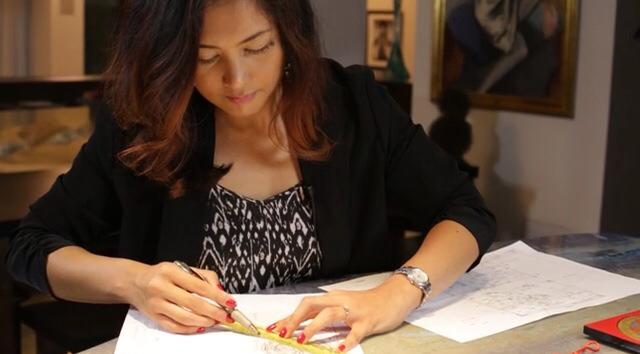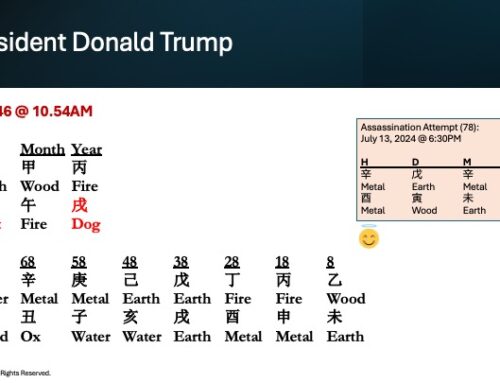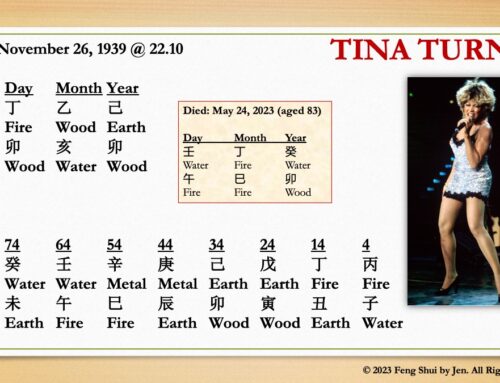
When A Feng Shui Consultant Is Invited To A Party
Whenever I get invited to a party, I feel angst at the thought of meeting a room full of new people. It’s not stage fright or public anxiety. In a social gathering, it’s the inevitable conversation that will come when I am asked what I do for a living.
“So, what do you do?”
“I am a Feng Shui Practitioner.”
Blank stare. “Oh, so you look at a room and tell someone to put a plant there or rearrange the furniture?”
“It’s more complicated than that.”
Many other professions are fairly straightforward to understand without much description—a chef, a CFO, a real estate agent, a jewelry designer, a yoga teacher, even a mechanic. These job titles paint an easy “gist” for most folks to understand. But telling someone you are a Feng Shui Practitioner opens up Pandora’s box that usually comes with curiosity, followed by a few raised eyebrows.
In my experience, my profession never falls short in drumming up some controversy and conversation. They seem to go hand-in-hand. Often times, I even find myself the reluctant “star” of the crowd, surrounded by people, eagerly anticipating to hear my expert assessment when they candidly ask: Does my house have good Feng Shui?
Feng Shui is Not a Quick Fix
Unfortunately, explaining the technicalities around the art of Feng Shui is a lot more complicated—and delicate—than just looking at your dining set or locating your “love corner,” and it would certainly require a lot more formality and dedicated personal consultation time, than just a brief explanation over cocktails and hors d’oeuvres.
Los Angeles-based Master Larry Sang once famously joked that he used to say there were two kinds of Feng Shui Schools:
- Compass School (classical, the one I use)
- ”E.T. School” (non-classical, casual, quick fix)
The latter, he explained, requires only a powerful finger to pinpoint directions without a Luo Pan (Feng Shui Compass).
His statement, although humorous, rings a hard and painful truth in our westernized and mainstream way of thinking. Typically I see Feng Shui glossed over in morning news shows or in magazine articles, and that has, sadly, contributed to the pervasive confusion around what people think Feng Shui really is. And I know this sentiment resonates with many Classical Feng Shui Practitioners everywhere, especially since the mass confusion has caused a very real and frustrating battle that we face every day.
Personally, I find it amusing to think that a Feng Shui Practitioner can simply “scan a room” and “expertly” judge the inherent Feng Shui energy of the space. It is as if the human eyes alone can gauge the invisible qi quality of a space like an x-ray machine. It’s amazing. Feng Shui Masters have suddenly developed superpower Feng Shui body parts! The truth is, even the most experienced, well-trained Feng Shui Practitioners do not do this.
Imagine for a moment you are chatting with a neurosurgeon at a party. Would you expect him or her to diagnose your headache as a brain tumor without a thorough examination? Or would you expect a jury to conclude on a defendant’s guilt without hearing and seeing all the evidence? Wouldn’t you agree it to be prudent and responsible to expect an accurate diagnosis and/or verdict based on facts and a systematic methodology so as to ensure these conclusions are reached accurately, objectively, and without bias?
I believe Classical Feng Shui Consultants deserve the same level of courtesy.
Honestly, I am writing this article to offer a firm answer to a very popular question: An authentic Feng Shui practitioner cannot conclude on the Feng Shui of your space just by looking at the colors, decors, and knick knacks of your home. And similar to any thorough body-health examination, a proper Feng Shui analysis also takes time to prepare, assess, diagnose, and treat.
Feng Shui the Right Way
In practice, we require knowing the following four components in order to execute our jobs properly:
- We need to know the orientation of the building by using a Luo Pan to determine the directional energy influencing the space.
- We need to know the year the building was constructed to determine the “age” of the building, like a person’s birthday.
- We need to have a copy of the floor plan or blue print of your space in order to see how the Feng Shui of this particular property is affecting the space.
- We need to know the birthdays of all the residents to determine how the Feng Shui of the space is affecting the people, which is ultimately the end goal. Feng Shui is not used to make the house happy. It is used to make the people living inside the house happy.
These individual components alone are deep in rules, computations, and technicalities that require formal training, practice, and guidance from an authentic school.
I have personally shadowed Grand Master Raymond Lo, who is among the top in the field, performing a residential Feng Shui assessment from start to finish. Even with his extensive expertise, it takes at least a half a day to formally deliver a comprehensive Feng Shui report. Therefore, expecting a hard-and-fast conclusion on the Feng Shui condition of any home cannot be done at a party in a matter of minutes. Any attempt to do so is cheating and it would be a very dangerous way of manipulating the qi flow of your space.
This is exactly the very reason why people claim Feng Shui doesn’t work or it is a superstitious “thing” entrenched in voodoo work. And so the discipline itself is rejected, dejected, and ridiculed. These misconceptions did not arise out of thin air. They persisted because some students and practitioners are continuously clumsy or reckless in their studies and/or training, victimizing the curious and the enthusiasts.
Classical Feng Shui is rooted in more than 5,000 years of history. It is a lot more sophisticated than keeping your toilet seat cover down or painting your front door red. While Feng Shui has indeed come a long way, its evolution and subsequent reemergence in today’s modern society has not been so smooth. And so, I ask that we not deviate from the fundamentals that make the wisdom of Feng Shui a valuable and insightful tool in helping to improve the qi of your home—and therefore, your life as well. Cheers!
To learn more about Feng Shui, please visit www.FengShuibyJen.com.
Copyrighted © 2016 | Feng Shui by Jen LLC | All Rights Reserved | Materials may not be copied, translated, or distributed without prior written consent.





